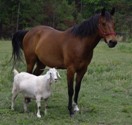rtrapasso
Posts: 22653
Joined: 9/3/2002
Status: offline

|
Year 1256:
The German king Wilhelm von Holland is killed in battle near Hoogwonde January 28 at age 27 while trying to secure his rule over the Frisians.
Venice and Genoa go to war in a conflict that will continue for a century.
The Nicaean emperor Theodore II Lascaris inflicts a second defeat on the Bulgars and forces them to sign a peace treaty in May. His daughter Maria is married in October to Nicephorus, a son of Michael, despot of Epirus, but Theodore demands as a condition of the marriage that he be given the town of Dyrrachium (Durres) and Serbia, thus enraging Michael and precipitating hostilities.
Volhynia's prince Danilo Romanovich launches a campaign to drive out the Mongols who have invaded his territories since 1240. He will succeed within a year or so in his efforts to end his allegiance to the khan (but see 1260).
The Mongol general Bayju defeats a Seljuk Turkish army near Aksary in October, beginning an occupation that will continue until 1335, with Mongol troops stationed permanently throughout Anatolia (see 1246; 1257).
The Mongol prince Hülegü Khan crosses the Oxus River, destroys Assassin fortresses one by one, and finally takes the great fortress at Alamut, wiping out Persian Assassins who have used terrorism for more than 150 years to control much of Persia and Mesopotamia (see 1094); Hülegü begins a 9-year reign, inaugurating the Mongol Il-khan dynasty that will rule Persia until 1349 (see 1258).
The Mongol prince Batu Khan dies (year approximate) and will be succeeded as commander of the Golden Horde next year by his brother Barakah (Berke), who will be converted to Islam, fight with his cousin Hülegü Khan in Persia, become virtually independent of the other khans, and lead the Golden Horde until his death in 1267.
The monastic order of Augustine Hermits is founded.
Italian scholar-philosopher Thomas Aquinas, 31, receives papal dispensation to receive the master of theology degree at the University of Cologne, whose authorities had required that a master of theology be at least 34. Aquinas has studied at Cologne under the 50-year-old Swabian-born Dominican monk and scientist Albert of Bollstadt (Albertus Magnus); he is named to fill one of two chairs allotted to Dominicans at the university and begins writing scholastic disputations refuting accusations against the Dominicans and Franciscans.
French authorities ban gambling with dice.
|
 Printable Version
Printable Version





















 New Messages
New Messages No New Messages
No New Messages Hot Topic w/ New Messages
Hot Topic w/ New Messages Hot Topic w/o New Messages
Hot Topic w/o New Messages Locked w/ New Messages
Locked w/ New Messages Locked w/o New Messages
Locked w/o New Messages Post New Thread
Post New Thread